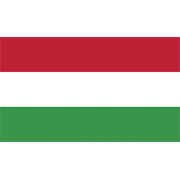General information
In December 2021, the Hungarian Parliament had taken into consideration Bill No. T/17882 with the aim to amend the special retail turnover tax amidst a few other changes. Soon after, the same institution has accepted the mentioned Bill and introduced changes regarding the retail turnover tax for the category of large taxpayers in this country.
The law has been amended to increase the tax rate for the highest band of the tax base above HUF 100 billion in 2022, the relevant retail tax rate will be set at 2.7% instead of the previous 2.5%.
In practice, this means that the rate of the retail tax will increase by 0.2 percentage points in the case of retail chains with an annual turnover of over HUF 100 billion. The changes will enter into force as soon as February 2022.
The other important change is an introduction of a food waste reduction penalty where a Food Rescue Centre (FSC) will be set up to collect food products with an imminent expiry date from retail companies (voluntary donations are accepted from companies with a turnover of less than HUF 100 billion) and coordinate their redistribution with the help of charities.
The amendments impose additional obligations on retailers with a turnover of over HUF 100 billion, including a food waste reduction plan. Exceeding the annual food waste target by more than 2% or failing to submit a food waste reduction plan should be sanctioned by a food waste reduction fine of HUF 15,000 up to 0.6% of the food chain supervision fee for the previous business year.
In other words, the current amendment is doubly unfavorable news for the largest multi-chains (e.g. Lidl, Aldi, Tesco, Spar and others): on the one hand, they have been fined for saving food and, on the other, the special retail tax they will have to pay will increase from February 2022.
As a reminder, retail tax is charged on Hungarian resident or foreign resident person/legal entity retailers, selling goods on a commercial basis as per the following NACE codes including the sales without using a fixed establishment, i.e. through an online shop.
Other news from Hungary
Hungary’s Next Phase of Fiscalization: What Retailers Need to Know About the Shift to E-Cash Registers
 Hungary
Author: Dunja Bošković Obradović
Hungary
Author: Dunja Bošković Obradović
Hungary is not announcing a fiscal revolution with headlines or sweeping political rhetoric. Instead, it is executing one methodically, through regulation, architecture, and time. For retailers and POS vendors operating in the country, the shift now underway will redefine what fiscal compliance means—not as a box to be checked, but as a system embedded directly into everyday transactions. At first... Read more



New webinar was uploaded: Recorded webinar: Approaching Hungary’s New E-Cash Register Era
 Hungary
Author: Tara Nedeljković and Ištvan Božoki
Hungary
Author: Tara Nedeljković and Ištvan Božoki
On December 19 2025, Fiscal Solutions organized a free webinar on the topic „Approaching Hungary’s New E-Cash Register Era“ The webinar was held by Tara Nedeljković, Team Lead of Legal Consultants at Fiscal Solutions, and Ištvan Božoki, Technical Consultant at Fiscal Solutions. Read more
Subscribe to get access to the latest news, documents, webinars and educations.
Already subscriber? Login


New event was created: Reminder - Join our free webinar: Approaching Hungary’s New E-Cash Register Era
 Hungary
Author: Tara Nedeljković and Ištvan Božoki
Hungary
Author: Tara Nedeljković and Ištvan Božoki
Step into this in-depth webinar designed for businesses and retailers operating in, or planning to enter the Hungarian market. You’ll discover what the new generation of e-cash registers is expected to introduce, along with the practical implications these changes may have on daily operations, technology planning, and customer interaction as well. 📅 18 December ⏰ 3 PM (CET) What we&rsquo... Read more



E--receipt requirements in Hungary – e-Cash registers in focus
 Hungary
Author: Tara Nedeljković
Hungary
Author: Tara Nedeljković
Recent legislative changes aim to replace mandatory paper receipts with regulated e-receipts, supporting NAV’s broader digitalization strategy while ensuring data security and limited tax-authority visibility. E-receipts must be generated by compliant devices, encrypted, optionally printed only on request, and may be linked to customer services such as loyalty programs only with explicit consent.... Read more



New event was created: Join our free webinar: Approaching Hungary’s New E-Cash Register Era
 Hungary
Author: Tara Nedeljković and Ištvan Božoki
Hungary
Author: Tara Nedeljković and Ištvan Božoki
Step into this in-depth webinar designed for businesses and retailers operating in, or planning to enter the Hungarian market. You’ll discover what the new generation of e-Cash registers is expected to introduce, along with the practical implications these changes may have on daily operations, technology planning, and customer interaction as well. 📅 18 December ⏰ 3 PM (CET) What we&rsquo... Read more



Choosing the Right Printer for the NAV e-Cash Register App in Hungary
 Hungary
Author: Tara Nedeljković
Hungary
Author: Tara Nedeljković
The NAV e-Cash Register app in Hungary supports a wide range of portable printers, but users should choose a device that meets the system’s technical expectations for clean and reliable receipt printing. Read more
Subscribe to get access to the latest news, documents, webinars and educations.
Already subscriber? Login


NAV Issues Detailed Guidance on Licensing Procedures for E-Cash Registers and Customer Apps
 Hungary
Author: Tara Nedeljković
Hungary
Author: Tara Nedeljković
NAV has published a detailed Notice explaining how distributors must apply for and obtain permits to market e-cash registers and customer applications under Decree 8/2025. Let’s explore this further. Read more
Subscribe to get access to the latest news, documents, webinars and educations.
Already subscriber? Login

